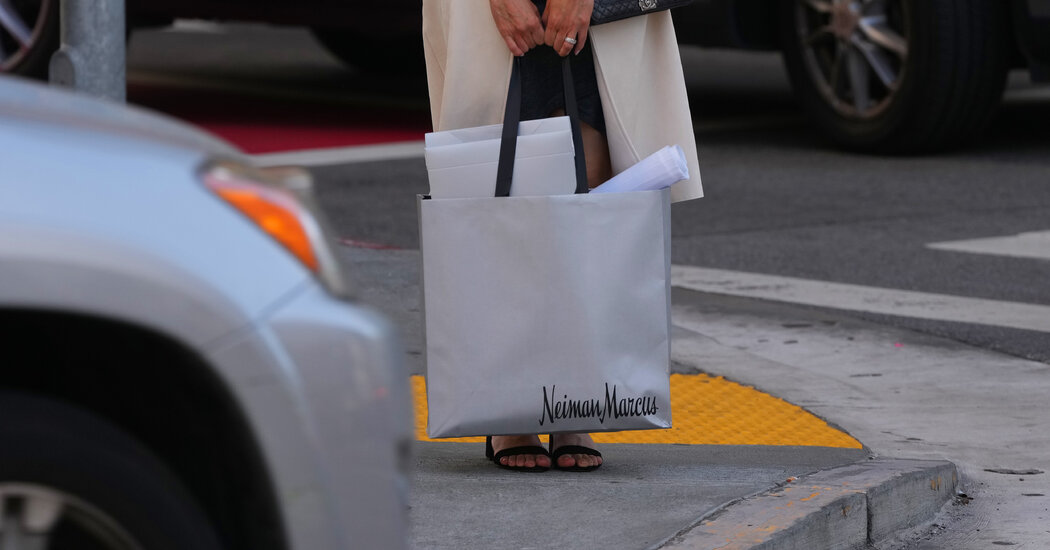In a move that would further consolidate the luxury retail market, the parent company of Saks Fifth Avenue has agreed to acquire Neiman Marcus in a $2.65 billion deal, creating the ultimate high-end department store behemoth, two people close to the negotiations said on Wednesday.
The deal, which had been rumored since Neiman Marcus filed for bankruptcy protection during the pandemic, comes just over four years after Saks bought the license for the Barney’s name following the bankruptcy of that group. It also follows a wave of luxury e-tail failures, including that of FarFetch and Matches.com. Saks is owned by HBC, a retail conglomerate that bought the American chain in 2013 — the year after HBC also acquired Lord & Taylor.
The acquisition of Neiman Marcus makes Saks Global, as the new group will be called, the dominant player in its market, with a combined 75 stores (including two Bergdorf Goodman stores), as well as 100 off-price stores. The new group’s only real rivals in the United States will be Macy’s, which also includes Bloomingdale’s, and Nordstrom. It will be run by Marc Metrick, the current chief executive of Saks and Saks.com, one of the people said.
As part of the deal, Amazon will take a minority stake in Saks Global, the two people said. HBC, which also owns the Canadian department store chain Hudson’s Bay, is financing the acquisition with $2 billion it has raised from existing investors. Affiliates of the investment firm Apollo Global Management are providing $1.5 billion in debt.
The Wall Street Journal earlier reported the deal.
The two retailers have long been viewed as potential matches, given their overlapping customer base of high-end customers. But each has struggled financially, posing significant complications for their efforts over the years to combine.
“There will be efficiencies, without a doubt,” said Robert Burke, the founder of a luxury retail consulting firm. “Retail has been sluggish lately, and maybe there will be more investment in both stores than there has been in the past. The real question will be how do the brands react to this? Especially the LVMH and Kering brands.”
LVMH is the luxury conglomerate that owns Dior, Louis Vuitton and Fendi, among other brands; Kering owns Gucci, Balenciaga and Saint Laurent. Both groups sell their goods in Saks and Neiman Marcus stores, but have been increasingly focused on driving consumers to their own stores and e-commerce sites.
Smaller independent brands, on the other hand, which have long relied on department stores to reach consumers across the country, will have even less choice and power in their negotiations with stores.
According to a person close to the deal, there are no plans — at least for now — to close stores for either brand, even though both operate in many of the same markets.
The Federal Trade Commission has been paying close attention to consolidation among fashion retailers. In April, it moved to block the planned acquisition of Capri (the group that owns Michael Kors, Versace and Jimmy Choo), by Tapestry (which owns Coach, Kate Spade and Stuart Weitzman). The commission argued that the planned consolidation would affect competition among the different brands. That case is expected to go to court in September.
When it comes to the Saks-Neiman deal, Mr. Burke said, “I am sure they will be looking at it closely.”
#Saks #Owner #Acquire #Neiman #Marcus #Creating #Luxury #Retail #Giant,
#Saks #Owner #Acquire #Neiman #Marcus #Creating #Luxury #Retail #Giant
